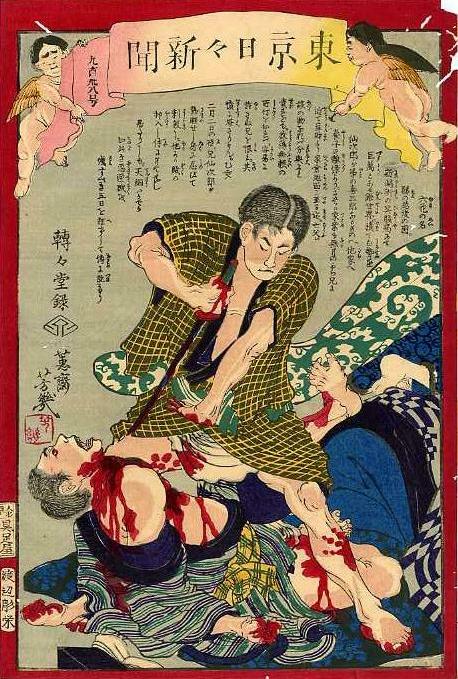Commentary
six-pedal flowers reflects 六花 (rikka), a simile for flakes of snow.
dissolution of an alliance of adoption to another house reflects 他家へ養子の離縁, which would usually be read "take e yōshi no rien" -- but here 離縁 (rien), meaning "dissolution of alliance" is glossed でかへり (dekaheri, dekaeri) -- and means "leaving" (出る deru) the family into which one has married and "returning" (帰る kaeru) to one's natal family after a divorce. Usually this is said of a woman, but it is also said -- as here -- of a man who has become an adopted son and husband. The fuller expression for "adopted son-in-law" is 婿養子 (muko yōshi).
house occupation reflects 家業, usually read "kagyō" but here glossed つとめ (tsutome), which could be written in many ways but means "work". A family that had no male heir (or no suitable male heir) to carry on the family trade would adopt a son, usually through marriage to a daughter. The adopted son would take the family name of his wife. If for any reason the marriage was dissolved, he would leave the family -- and, possibly, not have any work.
itsugai (乙亥) corresponds to 1875 in the sexagenary cycle.
heaven's net reflects 天網 (tenmō), which is also expressed "net of heaven" (天の網 ten no ami).
submitted to [its] rope eyes [knots] reflects 縛に就たり glossed as "nawame ni tsukitari". The term "nawame" would usually be graphed 縄目 meaning "rope eyes" or "knots". 縛に就たり would more generally be read "baku ni tsukitari" and mean "submitted to roping [tying, binding]".
